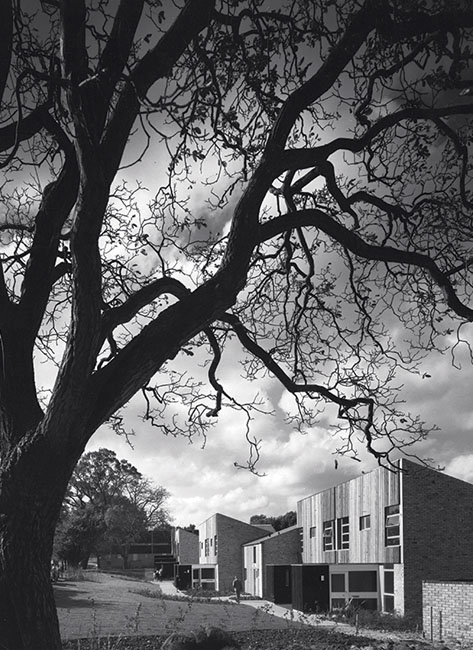Erfenissen van het woonerf
Samenvatting
Toen stedenbouwkundig ontwerper Niek de Boer in de jaren zestig in Emmen de term ‘woonerf’ introduceerde, verbond hij de nieuwe manier van wonen die hem voor ogen stond, aan een voor iedereen herkenbaar begrip: het erf, dat in het collectieve geheugen weerklank vond als een open gebied rond een vrijstaand huis, of als de veelzijdige buitenruimten van het boerenerf. De stedenbouwkundige vernieuwingen gingen zo ook in de naam al vergezeld van nostalgische voorstellingen van dorpse taferelen, waar buitenshuis, op straat van alles kon gebeuren. Vanuit dit oogpunt is het woonerf op te vatten als een typisch Nederlandse ontwikkeling, die ook internationaal navolging vond. Andersom kan ze echter niet los worden gezien van parallelle en eerdere ontwikkelingen op het internationale toneel. Zo zijn in de zoektocht naar ontspannen, groene woongebieden duidelijk sporen van Ebenezer Howard’s opvattingen over de tuinstad (Garden Cities of Tomorrow, 1902) en de gerealiseerde uitwerking daarvan in Engeland en de Verenigde Staten terug te vinden, maar ook van eerdere exploraties in filantropische plannen voor ideale arbeiderswijken, zoals het Delftse Agnetapark uit 1885. Woningen werden hier samengevoegd tot kleine boerderij-achtige volumes, gegroepeerd rondom gemeenschappelijke groene ruimten.



